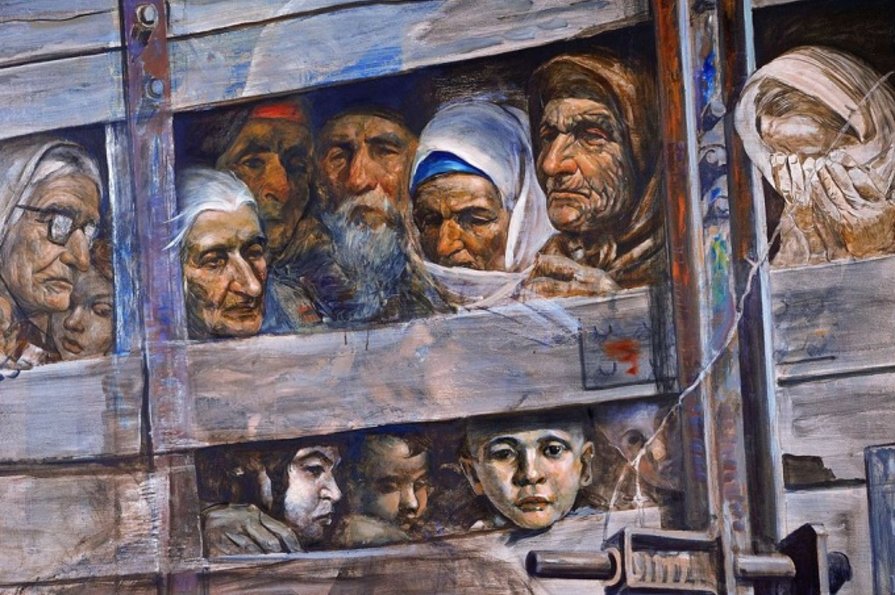As a Crimean Tatar, I since childhood I asked a question: HOW COULD THEY DO SUCH A CRUEL THING TO THE WHOLE ETHNICITY? The events of 1944 are terrible and meaningless. What was this mass insanity? I would like to believe that the criminal government “infected” people with crazy and cruel ideas. But there is a big “BUT” – most of those who “obeyed the order” are mentally healthy people.
The fact is that genocide never arises from anything. The appearance of a criminal or a maniac in power it is not enough for ordinary, upright people to suddenly take up arms against their neighbours speaking another language or praying to another god.
To explain the phenomenon of genocide, the American psychologist Irwin Staub introduced the concept of “hard times”, which in his opinion, always precede genocide.
1. “Hard times” is a feeling of depression, hopelessness, surrounded by enemies, a sense of injustice committed to “my people.”
Over the years of “hard times”, irritation and aggression have accumulated in society, which then find their way out in the barbaric acts of genocide
2. Firstly, it is necessary to have an enemy responsible for troubles and misfortunes, and secondly, with the elimination of which life will become better. It’s not that “they” (Crimean Tatars, Jews, Meskhetians) are to blame for our misfortunes, but that if “they” cease to exist, then life will become better.
3. Genocide is impossible without an acute sense of hatred. This hatred must be so intense that it allows a person to violate even the commandment “do not kill.” This hatred has long been brought up and developed. Its roots are in school textbooks, which tells about how beautiful the life of my ancestors was in the past when there were not yet “them,” how powerful and fair my state was before “they” came or even attacked. I think the point is clear.
In the late 60s, Canadian psychologist Melvin J. Lerner developed the so-called theory of belief in a world of justice. According to this theory, people prefer to believe that the world in which they live is fair in itself. Good is rewarded, and evil is punished. The consequence of this belief is, in particular, cruel treatment of victims of various misfortunes
If a person is not lucky, then they are to blame no one but themselves. If you have brutally treated an entire natationethnicue, then this is something they brought upon themselves. That is why there is an idea that the side of the victim is not capable of resistance since it does not deserve to “fight back”. The concept of non-resistance and complete impunity also a part of the ideology of genocide. They perceive any response to their actions as aggression by the victims and as a violation of some unwritten convention. They are convinced that they will never stand trial (official or public).
Accordingly, when the victims, despite the many times’ superior forces of the attackers, begin to resist, this resistance can be very effective. This applies to physical resistance and psychical resistance. In addition to the victim and the attacker, there is a third party in the acts of genocide, the WITNESS
The role of witnesses is crucial. Without their approval and support, mass violence is impossible. People do not do what is shameful to do, and those who participate in acts of violence need their actions to be recognised as heroic and proper actions.
Witnesses, strictly speaking, are neighbours, fellow citizens, and the international community. Condemnation at all these levels, psychological isolation (if there is no possibility of legal prosecution) can raise doubts in the attacker about the correctness of their actions, and therefore reduce the likelihood of new acts of genocide.
That year is significant because Latvia and Lithuania have already recognised the deportation of Crimean Tatars as a genocide. I am grateful for the contribution of these countries to the restoration of historical justice. BUT IS IT TRUE THAT “HARD TIMES” FOR MY PEOPLE LEFT BEHIND?
Erismal ISMAILOVA





